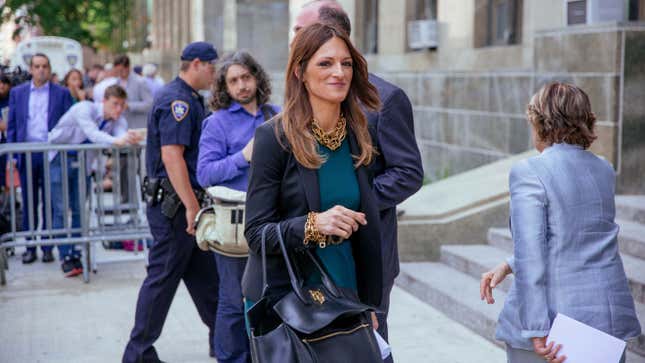Of Course Harvey Weinstein's New Lawyer Is a Woman Who Criticizes MeToo
Latest

Harvey Weinstein’s much-delayed sexual assault trial is expected to begin jury selection in September, and in anticipation, he’s rearranged his legal team for the third time. Perhaps inevitably, his lawyers now include defense attorney Donna Rotunno, who’s best known for representing men accused of sexual assault, questions the MeToo movement as a whole, and has said in previous interviews that her gender allows her to get away with more “venom” when cross-examining accusers.
To recap his byzantine legal affairs: Weinstein is heading to trial on charges of raping one woman in 2013 and forcibly performing a sex act on another in 2006, and has pleaded not guilty. (Separately, his board reportedly paid some $44 million to settle threatened civil suits.) His legal defense teams have fallen apart almost as fast as they were assembled; the latest attorney to leave the case, Jose Baez, complained in court documents that Weinstein “engaged in behavior that makes this representation unreasonably difficult to carry out effectively and has insisted upon taking actions with which I have fundamental disagreements.” Ronald S. Sullivan, a Harvard dean who faced fierce criticism from students there for representing Weinstein and subsequently stepped down as the faculty dean of an undergraduate house, has also withdrawn from the case.
Enter Rotunno, who said in a press conference this week that Weinstein had been “railroaded” by the #MeToo movement. She also claimed that the evidence at trial will show his “relationships” were consensual:
-

-

-

-

-

-

-

-

-

-

-

-

-

-

-

-

-

-

-

-

-

-

-

-

-

-

-

-

-

-

-

-

-

-

-

-

-

-

-

-








































